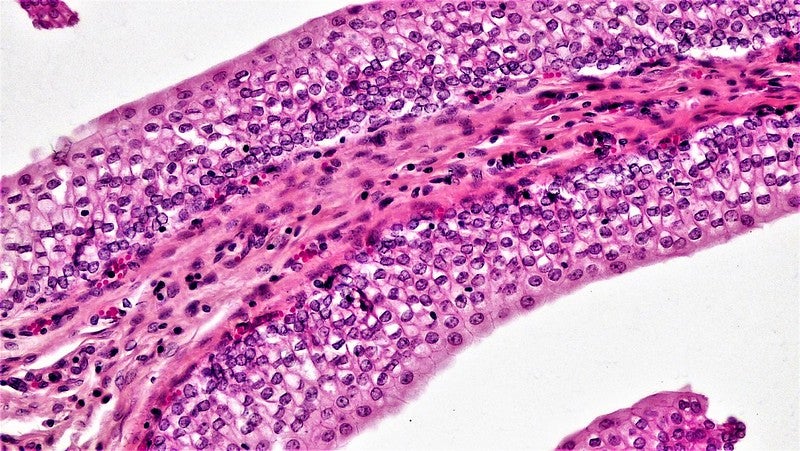
Urovant Sciences has reported positive topline data from the Phase IIa clinical trial of its investigational gene therapy product, URO-902, to treat overactive bladder (OAB) patients.
URO-902 is a new, locally injected plasmid human complementary deoxyribonucleic acid (cDNA) that encodes the maxi-K channel.

Discover B2B Marketing That Performs
Combine business intelligence and editorial excellence to reach engaged professionals across 36 leading media platforms.
It is being developed to treat individuals with OAB that is inadequately managed on treatment with oral or transdermal pharmacologic therapy.
The randomised, double-blind, placebo-controlled exploratory trial analysed the safety, efficacy and tolerability of single doses of URO-902 versus placebo.
URO-902 is given through direct intradetrusor injections into the bladder wall under local anaesthesia in individuals with OAB symptoms and urge urinary incontinence (UUI).
The trial enrolled 80 female subjects who were categorised into two cohorts.

US Tariffs are shifting - will you react or anticipate?
Don’t let policy changes catch you off guard. Stay proactive with real-time data and expert analysis.
By GlobalDataSubjects in one cohort received either 24mg URO-902 or placebo while the participants in the second cohort were given 48mg URO-902 or placebo into the bladder wall.
Several outcome measures were analysed in the trial, including the impact on the number of urgency episodes, micturitions and quality of life indicators versus placebo at 12 weeks following dosing.
According to the findings, URO-902 was found to have a clinically meaningful and statistically significant impact on various outcome measures in OAB versus placebo from baseline to week 12.
Furthermore, it was demonstrated to be well tolerated versus placebo.
In both treatment cohorts in the trial, urinary tract infection was reported to be the most common adverse event.
Urovant Sciences executive vice-president and chief medical officer Cornelia Haag-Molkenteller said: “URO-902 showed a clinically meaningful and statistically significant effect on a number of relevant outcome measures in OAB, including a number of micturitions, urgency episodes, and quality of life indicators compared to placebo, 12 weeks post-administration.
“We are encouraged by these positive results and pending the completion of the study in fall 2022 and we look forward to discussing next steps for the URO-902 clinical development plan.”





